Danish Pastry Dough
You can make honest to goodness Danish Pastry Dough at home. I’ll show you a quick shortcut that streamlines the process without sacrificing quality.
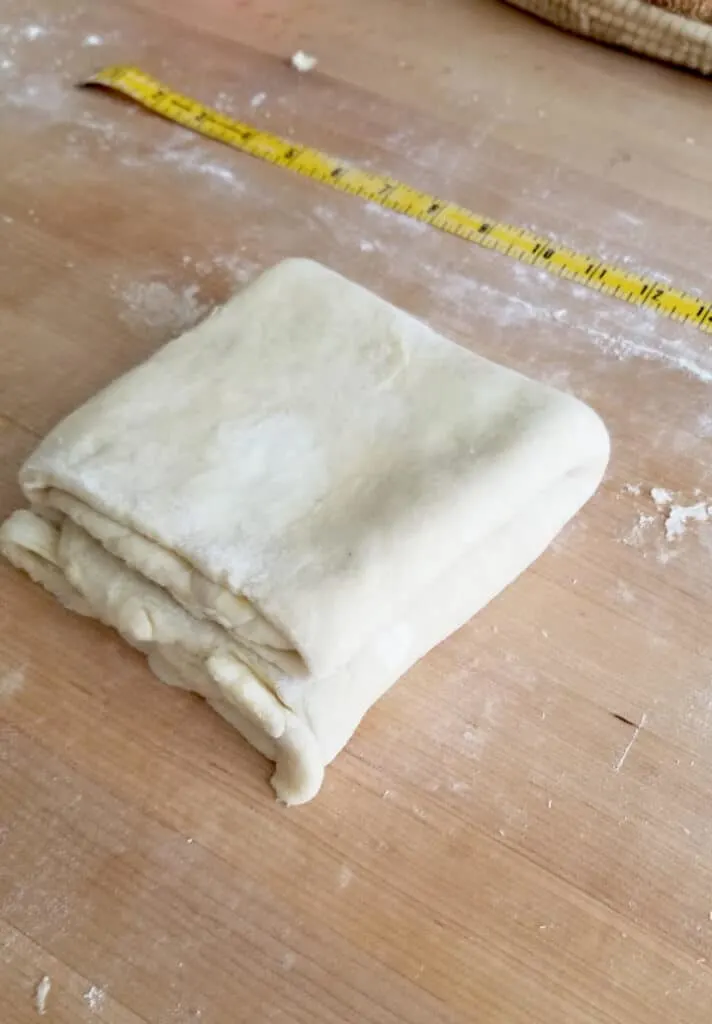
You’ll see lots of Danish Pastry recipes that use puff pastry dough or even phyllo dough as a shortcut. Those are not bad options, but true Danish pastry is made with a special type of dough.
Like puff pastry and croissants, danish dough is laminated (layered with butter).
There aren’t as many layers in this dough as there are in a classic puff pastry, but the addition of sugar, milk and an egg yields a rich, slightly cakey dough that is a little different than its laminated cousins.
The good news is, the process can be streamlined quite easily without compromising the classic texture. The results are wonderful and the process is quite easy to follow.
Before we move on, if you have a sourdough starter, you might want to make this Sourdough Danish Pastry instead.
Ingredients
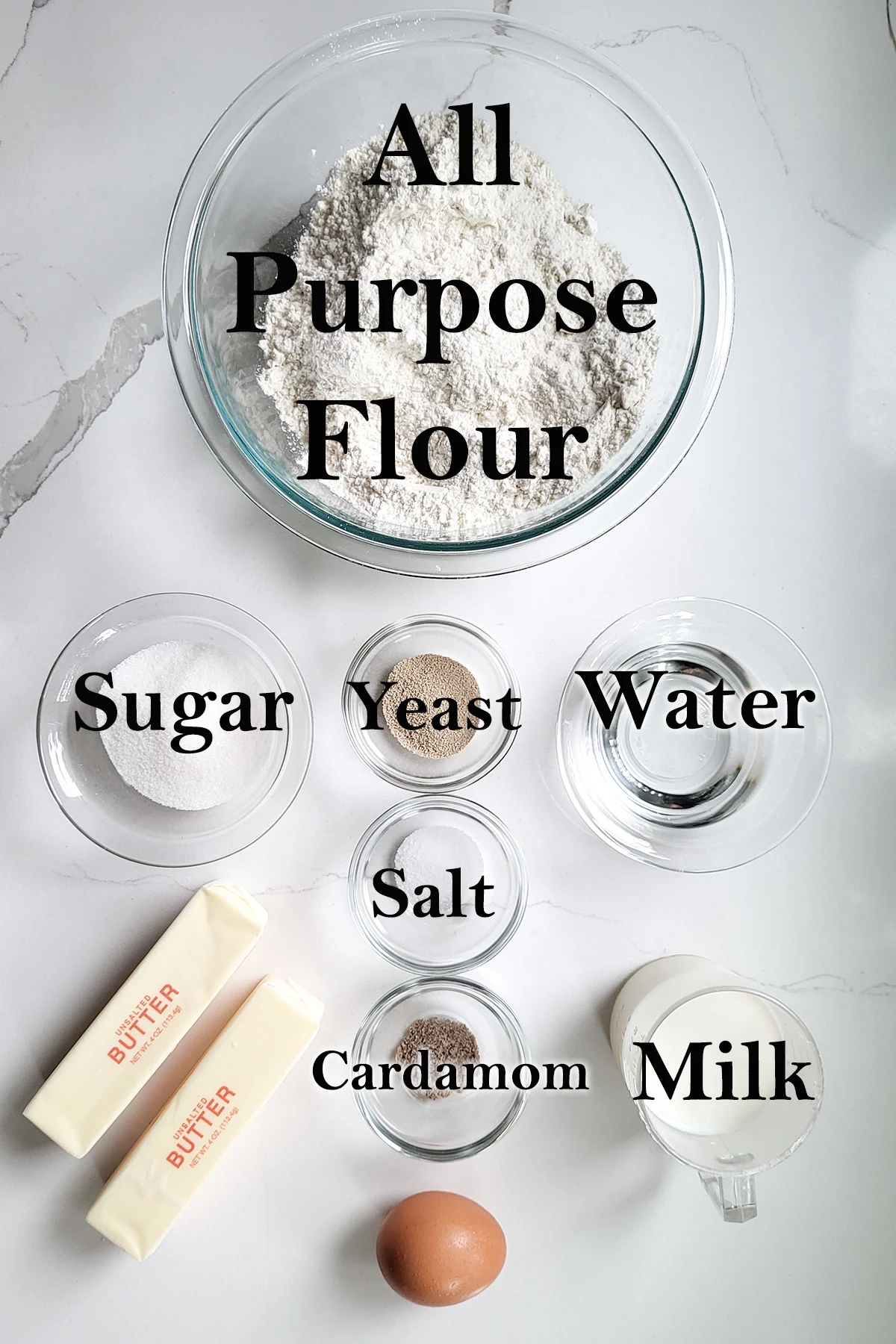
Ingredient Notes
- All Purpose Flour – Medium protein ap flour makes a dough that is strong enough to hold in the layers of butter, but soft enough to make a tender pastry.
- Sugar – Just a hint of sugar tenderizes and sweetens the dough.
- Milk – Scalding then cooling the milk alters the protein in the milk which can interfere with gluten development. Don’t skip the scalding step.
- Cardamom- The spice is a traditional flavoring for Danish pastry.
How to make quick Danish Pastry Dough:
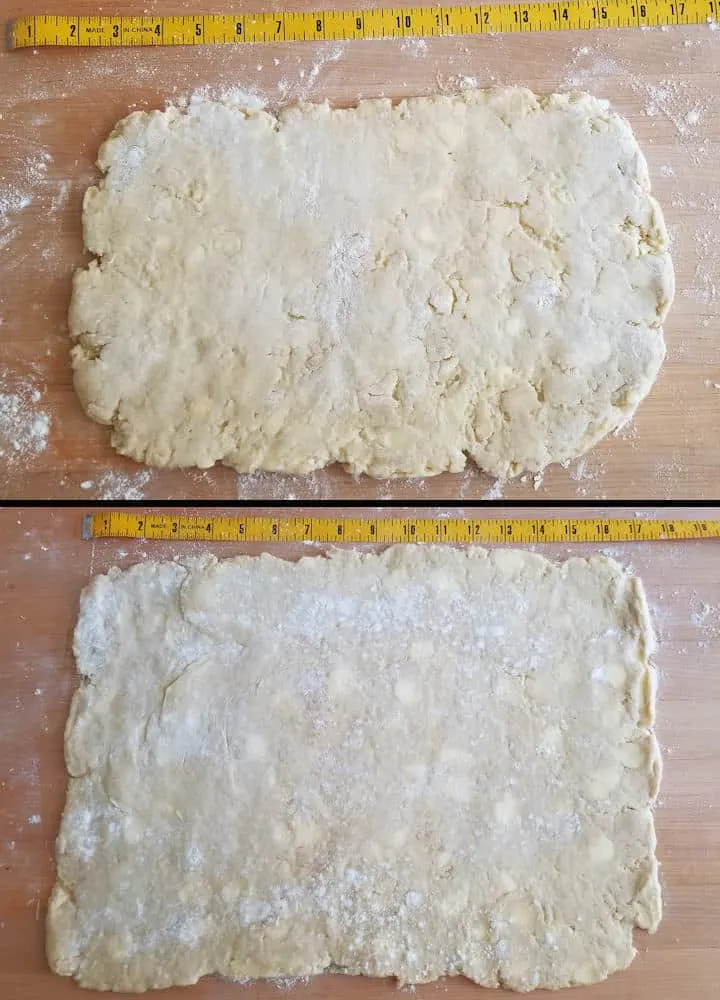
- Pat the dough into a rough rectangle.
- Roll to a 12″ x16″ rectangle.
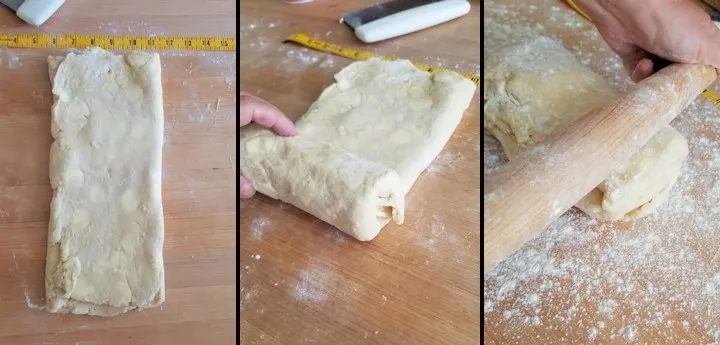
- Fold the dough in thirds
- Roll the dough into a log.
- Press the log flat.
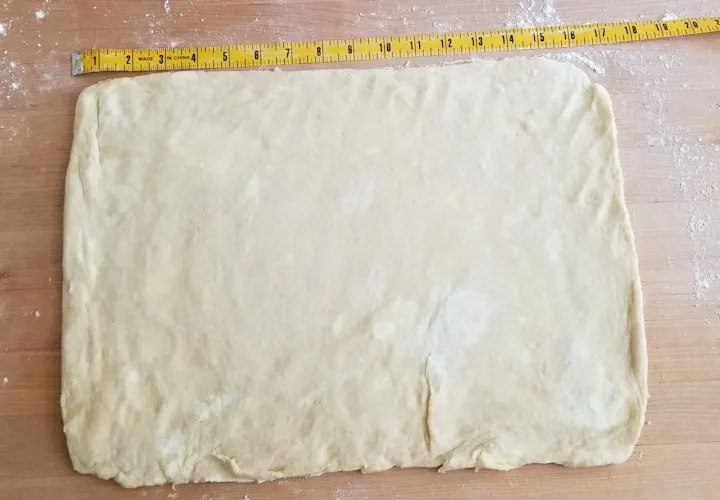
- Once again roll the dough to a 12″ x 16″ rectangle.
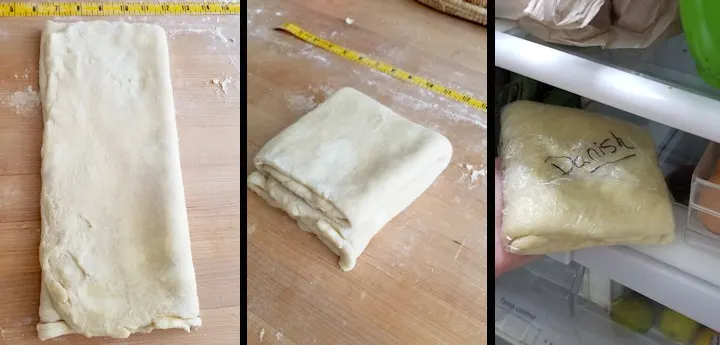
- Fold the dough into thirds again.
- Fold in half.
- Wrap and chill or freeze the dough before using in your favorite Danish recipe.
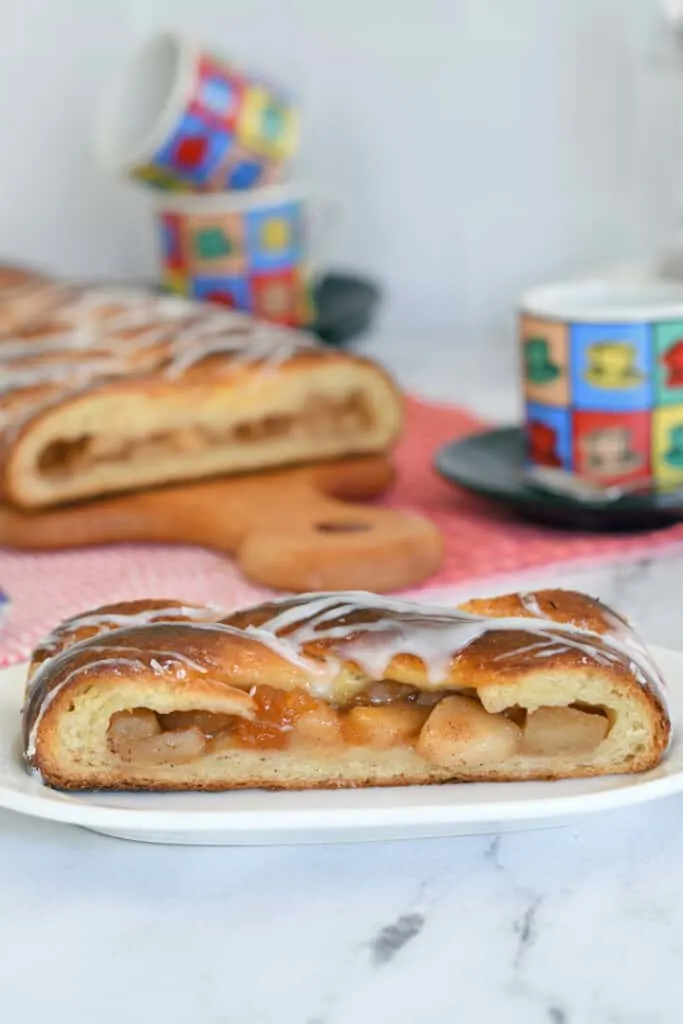
You’re now ready to make a beautiful Braided Apple Danish, a tray of Glazed Cheese Danish, Bear Claws or any other Danish pastry you desire.
I think you’ll like these other breakfast and brunch treats: Sourdough Croissants, New York Bagels, Onion & Poppyseed Bialys, Pumpkin Coffee Cake, Apple Cider Donuts and French Crullers (made from Pate a Choux batter).
If you love this recipe as much as I do, I’d really appreciate a star rating and a quick comment. Ratings and comments help my recipes show in search results. Thanks!
Danish Dough Recipe
Ingredients
- 3 oz water (⅓ cup, warmed to 105 °F)
- 2 ¼ teaspoons instant dry yeast
- 3 oz whole milk (⅓ cup, scalded and cooled )
- 1 egg (room temperature)
- 12 ½ oz all purpose flour (2 ½ cups, see note)
- 3 oz sugar (⅓ cup)
- ½ teaspoon table salt
- ½ teaspoon ground cardamom
- 8 oz unsalted butter (cold, cut into ½" cubes)
Instructions
- Mix 3 oz water with 2 ¼ teaspoons instant dry yeast. Add 3 oz whole milk and 1 egg to the water/yeast mixture and mix to combine. Set the wet ingredients aside.
- Place 12 ½ oz all purpose flour, 3 oz sugar, ½ teaspoon table salt and ½ teaspoon ground cardamom in the bowl of a stand mixer or a large mixing bowl. Mix for 30 seconds to combine the ingredients. Toss in 8 oz unsalted butter cubes and run the mixer on low briefly to distribute the butter. You don’t want to break the butter down at this point. If working by hand, toss in the butter cubes and mix them through the flour.
- With the mixer running on low, add the liquid all at once and mix just until it is absorbed. If working by hand stir the liquid in until it’s mostly absorbed. Turn the rough mass out onto the work surface and gather the dough into a large ball. Wrap the ball in plastic and refrigerate for 1-2 hours. The dough will rise slightly while refrigerated.
- On a lightly floured surface, use your hands to pat the dough into a rough rectangle, then roll the dough to a 12” x 16” rectangle. Lightly brush the surface of the dough with cold water. Fold the dough into thirds, like a letter. Lightly brush the surface of the dough with cold water. Roll the dough up from the short side. You’ll now have a short log.
- Press on the log to flatten and roll into a 12” x 16” rectangle. Lightly brush the surface of the dough with cold water. Fold the dough into thirds, like a letter, brush again with water and then fold in half to make a square.
- Wrap the dough and place it in the refrigerator for at least 2 hours or up to 2 days. If at any time during the folding the dough becomes tough or the butter begins to melt, wrap the dough and let it rest in the refrigerator for 30 minutes before proceeding.
- The dough is ready to use in any recipe or can be frozen to be used at a later date. When ready to use the dough in a recipe, do not unfold before rolling.
Would you like to save this recipe?
As an Amazon Associate and member of other affiliate programs, I earn from qualifying purchases.








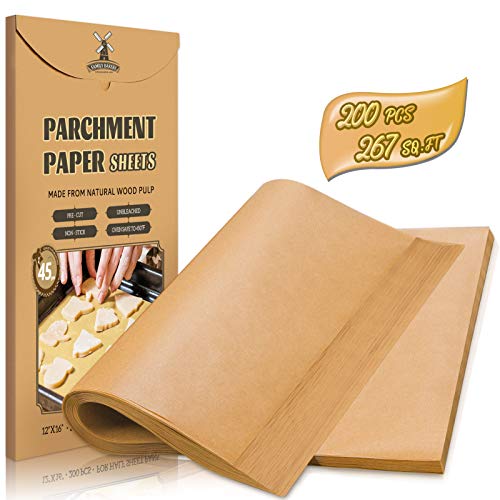
I used this dough to make raisin danishes. They were great! Fantastic recipe.